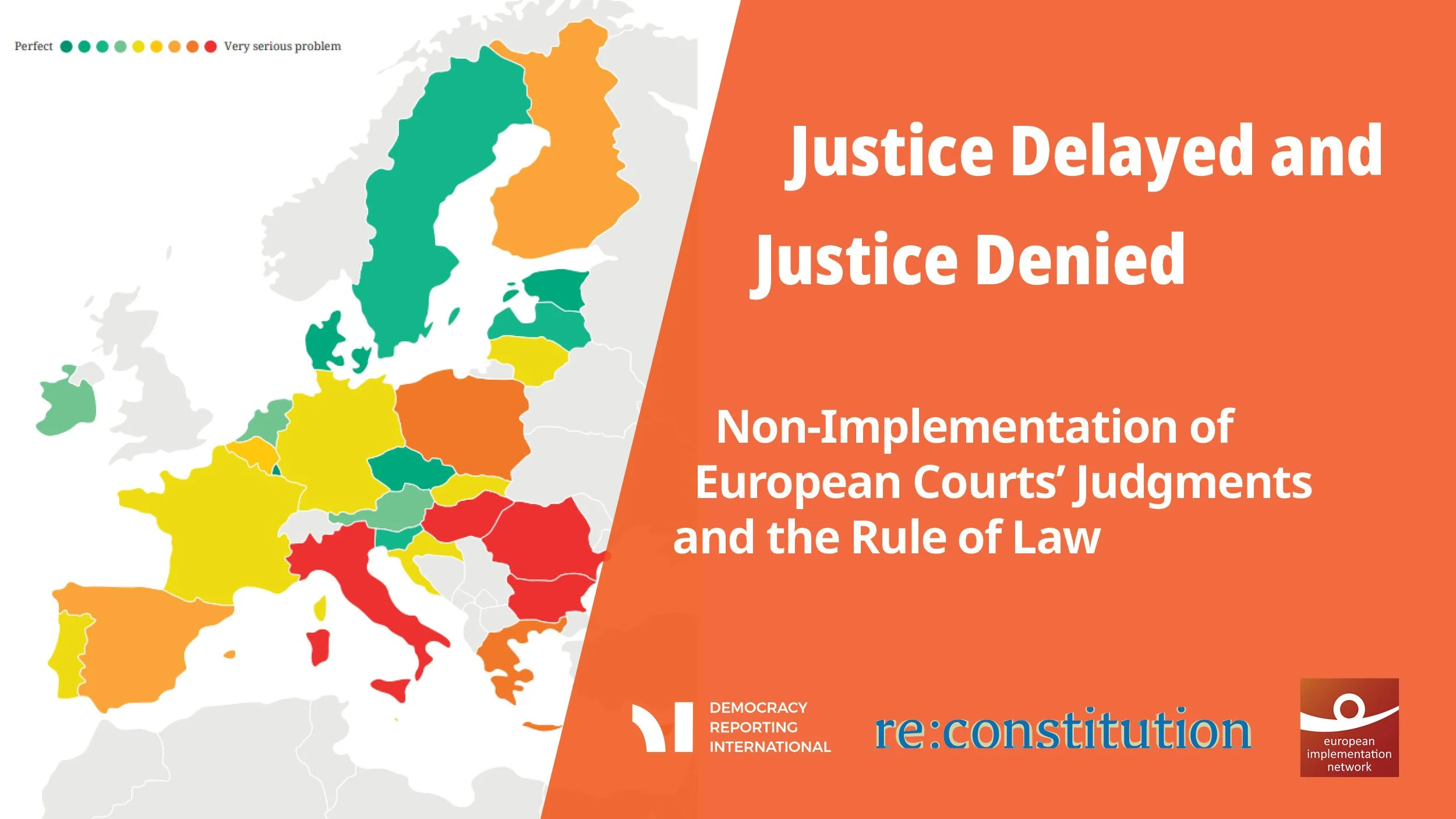EU takes up EIN/DRI proposals on the rule of law reports
/Last week the EU Commission published its 2022 Rule of Law Report. The report reviews the state of the rule of law in all 27 EU member states.
Together with Democracy Reporting International (DRI), the European Implementation Network has been leading calls for the EU’s rule of law reporting to take into account the non-implementation of judgments from the two key European courts: the European Court of Human Rights and the Court of Justice of the European Union. A joint campaign by EIN and DRI has included a series of submissions to the EU’s rule of law consultation process, blogging, public events, private briefings, and the publication of a report ‘Justice Delayed and Justice Denied: Non-Implementation of European Court Judgments and the Rule of Law’.
We argued that the non-implementation of judgments of the European Courts has become a systemic problem. Some 37.5% of the leading judgments of the European Court of Human Rights (ECtHR) relating to EU states from the last ten years are still pending implementation. Each of these judgments relates to a significant or structural problem in the laws or practices of states, often with direct consequences for many citizens. This amounted to a serious rule of law problem: both because the subject-matter of the judgments included rulings concerning the independence and impartiality of the judiciary and the right to fair trial; and because the implementation of judgments is inherently a rule of law issue, which is fundamental to a system of checks and balances. If governments are able to exercise power without the limits placed upon them by courts - for instance, by ignoring court judgments - then the rule of law does not exist.
In response to this, we proposed that the EU rule of law reports take into account the overall levels of implementation of leading judgments of the European Court of Human Rights. In order to facilitate this, we developed a methodology to assess ECtHR judgment implementation, taking into account three elements: the overall number of leading judgments pending implementation against a state; the percentage of leading judgments from the last ten years pending against a state; and the average length of time that leading judgments had been pending implementation. We applied this methodology to analyse the situation in all 27 EU member states, publishing the outcome in a joint report with DRI in April 2022.
Last week we were very pleased to see that the EU Commission has taken up our proposals. The communication concerning the 2022 reports notes the importance of the implementation of ECtHR judgments to the rule of law.
“The track record of implementing leading judgments of the European Court of Human Rights (ECtHR) is also an important indicator for the functioning of the rule of law in a country. The country chapters therefore for the first time include systematic indicators on the implementation of ECtHR leading judgments by all Member States.”
Each of the 27 country chapters includes an assessment of the overall levels of implementation of ECtHR judgments in the state concerned. These assessments apply our methodology of analysing three data points about the implementation of leading judgments, citing the contribution from EIN.
We welcome this development in the EU Commission’s rule of law reporting, hoping that it enhances both the EU’s rule of law procedures and the implementation of judgments of the European Court of Human Rights. We are grateful to the EU Commission for its open engagement on this issue – and to the MEPs who have supported this campaign, including Katerina Barley, Sophie in 't Veld, and Thijs Reuten.
Our project was made possible through the generous support of the Stiftung Mercator Foundation.



